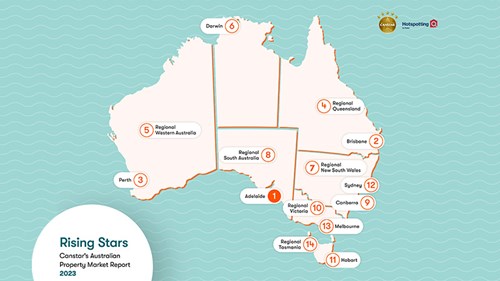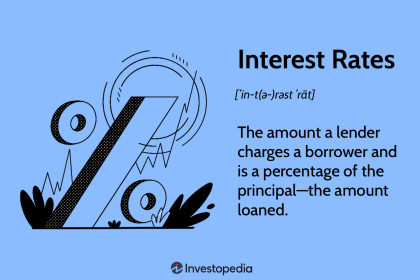Divorce is, without a doubt, one of life’s most challenging and emotionally draining experiences. It’s a seismic shift that impacts every corner of your world, from your daily routine to your long-term financial future. At the epicentre of this upheaval often lies the family home—a place filled with memories, but also a significant financial asset that must be dealt with.
- The First Step: Understanding the Emotional and Financial Landscape
- Your Legal Standing: The Family Law Act and the Matrimonial Home
- The Three Core Pathways for Your Property
- Beyond the Family Home: Investment and Commercial Properties
- State-Specific Nuances Across Australia
- Assembling Your A-Team: The Professionals You Need
- Conclusion: A New Beginning
Navigating a real estate transaction amidst the emotional turmoil of a separation can feel like trying to solve a complex puzzle in the middle of a storm. The questions are endless and overwhelming. Do we sell? Can I buy my ex-partner out? What are our legal obligations? How does this work if we also own commercial property?
As a long-time commentator on the Australian property market, from the bustling streets of real estate sydney to the sprawling suburbs of perth real estate, I’ve seen firsthand how these situations can unfold. The good news is that with the right information, a clear strategy, and a team of dedicated professionals, you can get through this. You can make decisions that protect your financial interests and set you on a path to a stable and independent future.
This guide is designed to be your comprehensive roadmap. We will break down the legal jargon, explore your options in detail, and provide actionable steps to help you navigate the sale, buyout, or division of your property with confidence and clarity.
The First Step: Understanding the Emotional and Financial Landscape
Before you call a single real estate agent or lawyer, it’s crucial to take a breath and assess the situation. The decisions you make about your property are not just financial; they are deeply personal.
Acknowledging the Emotional Weight
The family home is more than bricks and mortar. It’s where you may have raised children, celebrated milestones, and built a life. The idea of selling it can feel like a second loss. It’s essential to acknowledge these feelings. Rushing into a decision based on anger, spite, or a desire to “just get it over with” can lead to significant financial regret.
- Tip: Consider engaging a counsellor or therapist who specialises in separation. Dealing with the emotional side separately can free up your mental capacity to handle the logistical and financial aspects more rationally.

Gaining Financial Clarity
The second immediate step is to get a crystal-clear picture of your financial position. This isn’t the time for guesswork. You need hard numbers.
- Asset and Liability Inventory: Create a detailed list of everything you and your ex-partner own and owe, both jointly and separately. This includes the family home, investment properties, commercial real estate, cars, savings, superannuation, mortgages, credit card debt, and personal loans.
- Mortgage Check-in: Contact your lender to understand the exact payout figure for your mortgage. Find out if there are break fees for ending a fixed-term loan early.
- Income and Expenses: Create a realistic budget for your post-divorce life. This will be critical in determining whether you can afford to keep the house on your own.
This initial financial audit forms the foundation for all property settlement negotiations.
Your Legal Standing: The Family Law Act and the Matrimonial Home
In Australia, the division of assets in a divorce is governed by the Family Law Act 1975. A common misconception is that assets are split 50/50. This is rarely the case. The court takes a four-step approach to determine a “just and equitable” division:
- Identify and Value the Asset Pool: Everything mentioned above is put into a pool.
- Assess Contributions: The court looks at financial contributions (e.g., who paid the deposit, mortgage) and non-financial contributions (e.g., homemaker, parent, renovations).
- Consider Future Needs: This includes factors like age, health, income-earning capacity, and who has the primary care of the children.
- Practical Effect: The court ensures the final division is fair and practical in the circumstances.
The family home, or “matrimonial home,” holds a special place in this process. Neither party can sell or mortgage the property without the written consent of the other, regardless of whose name is on the title deed. This provides crucial protection until a formal agreement or court order is in place.
Source Link: For detailed legal information, visit the Family Court of Australia.
The Three Core Pathways for Your Property
Once you have a handle on the emotional and legal context, you’ll find there are three primary paths you can take with the family home. Let’s explore each one in depth.
Option 1: Selling the Property and Splitting the Proceeds
This is often the cleanest and most common option. Selling the home allows both parties to receive their share of the equity, pay off joint debts, and make a completely fresh start. It provides a clear financial endpoint. The process, however, requires cooperation.
The Step-by-Step Guide to Selling During a Divorce
- Formal Agreement to Sell: The first step is to get a formal, written agreement to sell. This should be part of your overall property settlement, ideally documented in Consent Orders filed with the court. This legally binding document prevents one party from changing their mind halfway through the process.
- **Choosing the Right Real Estate Agent: This is one of the most critical decisions you will make. You need an agent who is not only a skilled negotiator but also a sensitive and impartial communicator.
- Interview Together: If possible, interview at least three agents together. Look for someone who addresses both of you equally and demonstrates experience with separation sales. Leading agencies like Ray White Real Estate or Elders Real Estate often have agents with specific training in these delicate situations.
- Local Expertise: Whether you’re in real estate QLD or dealing with SA real estate, a local agent is non-negotiable. An expert in Gold Coast real estate will understand that market’s nuances, just as an agent from Turner Real Estate in Adelaide will know their local buyer pool.
- Agree on Everything: The agent you choose, the marketing budget, the commission, and the sale price—all of it needs to be agreed upon in writing.
- Preparing the Home for Sale: This can be a challenge when two parties are no longer living together.
- Declutter and Depersonalise: The goal is to make the home appealing to the widest possible audience. This means removing personal photos and clutter. Agree on a schedule for who will do what, or consider hiring a professional service and splitting the cost.
- Repairs and Maintenance: A pre-sale inspection can reveal minor issues that could deter buyers. Agree on a budget for essential repairs to maximise your sale price.
- **Professional Real Estate Photography: This is not the place to cut corners. High-quality photos are the single most important marketing tool. A good agent will have a professional photographer they trust.
- Navigating the Sale Process:
- Communication: Establish a clear communication protocol. Will the agent contact you both simultaneously via a group email or text? This prevents “he said, she said” scenarios.
- Accepting an Offer: The decision to accept an offer must be mutual. Your written agreement should outline what happens if you can’t agree on a price (e.g., a clause stating you will accept any offer within 5% of the agreed-upon list price).
- Settlement and Division of Funds: At settlement, the proceeds of the sale will typically be held in a trust account by your solicitor or conveyancer. From here, the mortgage is paid out first, followed by any other agreed-upon joint debts, legal fees, and agent commissions. The remaining balance is then divided between you and your ex-partner according to your legal agreement or court order.
Option 2: One Partner Buys Out the Other

This option is appealing for many reasons, particularly if children are involved. It provides stability for the kids by allowing them to stay in their home, school, and neighbourhood. The partner who remains also avoids the significant costs associated with selling and buying another property (e.g., stamp duty).
However, a buyout is financially and legally complex.
The Buyout Process Uncovered
- Get an Official Valuation: You cannot simply guess the value of your home. You and your ex-partner must agree on a certified valuer or, more commonly, each get an independent valuation and agree to use the average. This is different from a real estate agent’s appraisal, which is an estimate for marketing purposes. A formal valuation is required by banks for finance.
- Calculate the Equity and Payout Figure:
- Equity = Agreed Property Value – Mortgage Remaining
- Payout Figure = (Equity / 2) – (any other adjustments from the property settlement)
- For example:
- Property Value: $1,000,000
- Mortgage: $400,000
- Equity: $600,000
- Assuming a 50/50 split, the payout to the exiting partner would be $300,000.
- Secure Finance (The Biggest Hurdle): The partner wishing to stay in the home must apply for a new mortgage in their name only. This new loan needs to be large enough to cover the existing mortgage plus the payout figure to their ex.
- The Lender’s Assessment: The bank will assess your application based on your sole income and expenses. This is a major challenge for many, especially if one partner was the primary income earner.
- Work with a Mortgage Broker: A good mortgage broker is invaluable here. They can assess your borrowing capacity and navigate the complex requirements of a spousal buyout refinancing.
- The Legal Transfer: Once finance is approved, solicitors handle the legal side. This involves discharging the old joint mortgage, registering the new one, and transferring the property title into the sole name of the partner who is buying. The payout funds are transferred to the exiting partner as part of this process. Stamp duty is typically not payable on a transfer of a matrimonial home due to a relationship breakdown, but you must check the specific rules in your state (e.g., for real estate Victoria vs. real estate NSW).
Option 3: Deferring the Sale and Co-Owning
In some circumstances, it may be beneficial to postpone the sale of the property. This is most common when the parties want to provide stability for their children until they finish school. It can also be a strategic move if the market is weak and you believe the property’s value will increase.
How It Works
- Co-Ownership Agreement: This requires a very detailed and legally binding agreement. It must cover every possible scenario:
- Who pays the mortgage, rates, insurance, and maintenance?
- What happens if one person wants to sell before the agreed-upon date?
- How will the proceeds be split when the property is eventually sold real estate?
- What happens if the resident partner wants a new partner to move in?
- “Nesting”: A popular arrangement where the children remain in the family home full-time, and the parents move in and out according to a custody schedule, often sharing a separate, smaller apartment for their “off” weeks. This centres the children’s stability but requires a high degree of cooperation and financial capacity from the parents.
Warning: This option is fraught with potential conflict and should only be considered by couples who have an exceptionally amicable relationship and can afford to maintain the home while also funding their own separate living arrangements.
Beyond the Family Home: Investment and Commercial Properties

The property settlement pool includes all assets, not just the home you live in. If your portfolio includes real estate rentals or commercial property, the considerations become even more complex.
Investment Properties
- Valuation: Like the family home, these need to be professionally valued.
- Capital Gains Tax (CGT): This is a huge factor. The family home is generally exempt from CGT, but investment properties are not. When an investment property is sold or transferred as part of a settlement, CGT implications arise. A “CGT rollover relief” may apply, which defers the tax liability until the receiving spouse eventually sells the property. It is absolutely essential to get specialist advice from an accountant.
- Ongoing Management: Who manages the property during the separation process? You’ll need to agree on how to handle the property manager, tenant issues, and the rental income. Does the income continue to go into a joint account or is it split?
Commercial Real Estate
Dealing with real estate commercial properties can be even more intricate, especially if they are tied to a family business.
- Complex Valuations: Valuing a commercial property often involves assessing not just the building, but also lease agreements, rental yields, and its role within a business structure. This requires a specialised commercial real estate Perth or Sydney valuer, for example.
- Business Structures: The property may be owned by a trust or company, not by individuals. Unravelling this requires legal and accounting experts who understand both family law and commerce.
- Ongoing Viability: A decision about the property could impact the viability of an ongoing business that one or both partners rely on for income.
State-Specific Nuances Across Australia
While the Family Law Act is federal, property and conveyancing laws are state-based. This means there are small but important differences depending on where your property is located.
- **New South Wales (Real Estate NSW): Known for its high-value markets like real estate Sydney and regional hubs like real estate Kiama. Stamp duty exemptions for transfers are well-defined but require precise legal documentation.
- **Victoria (Real Estate Victoria): The process in Melbourne real estate is generally streamlined, but the State Revenue Office has strict requirements for proving a relationship breakdown to claim stamp duty exemptions.
- **Queensland (Real Estate QLD): From the fast-paced real estate Brisbane market to the lifestyle-driven Gold Coast real estate and tourism hubs like real estate Cairns, QLD has diverse markets. Transfer duty concessions are available but must be applied for correctly.
- **South Australia (SA Real Estate): In real estate Adelaide, firms like Turner Real Estate and others handle these matters routinely. The process is straightforward but diligence with RevenueSA is key.
- **Western Australia (Real Estate Perth): The WA market, from metro Perth to regional areas like real estate Margaret River or coastal suburbs serviced by firms like Halls Head Real Estate, has its own unique conveyancing practices and timelines.
- Other Regions: Whether you’re dealing with Kevin Hicks Real Estate in regional Victoria or a firm in Swan View, local knowledge is paramount. Even real estate NZ (New Zealand) operates under a completely different legal framework (the Property (Relationships) Act).
The key takeaway: Your legal and conveyancing team must be licensed and experienced in the specific state where your property is located.
Live Daily Information: Your Australian Real Estate Market Pulse
Making informed decisions requires current data. While specific advice must come from a professional, here are sources for the kind of information you should be tracking daily.
- **Current Listings & Market Trends (Real estate for sale):
- Domain Real Estate: https://www.domain.com.au/
- Realestate.com.au (real estate au): https://www.realestate.com.au/
- Use these platforms to check recently sold real estate in your area to get a feel for current market values.
- Interest Rate News:
- Reserve Bank of Australia (RBA): https://www.rba.gov.au/cash-rate/
- The official cash rate directly influences the mortgage rates offered by banks, impacting borrowing capacity for buyouts.
- **Property Market News & Analysis (Real estate news):
- CoreLogic Australia: https://www.corelogic.com.au/news-research
- CoreLogic provides high-level data and analysis on property market performance across the country.
Assembling Your A-Team: The Professionals You Need

You cannot and should not do this alone. A successful and low-stress transaction depends on having the right team of independent professionals in your corner.
- Family Lawyer: This is your primary advocate. They will negotiate on your behalf, draft legally binding agreements, and ensure your rights are protected throughout the entire process.
- Real Estate Agent: As discussed, an impartial, experienced, and communicative agent is essential for a successful sale. They are your guide to the property market.
- Mortgage Broker: Crucial if you are considering a buyout. They have access to multiple lenders and can find a product that suits your new financial circumstances.
- Accountant: Indispensable if your asset pool includes investment properties, commercial holdings, or complex business structures. They will provide critical advice on tax implications like CGT.
- Financial Planner: They can help you plan for your future. Once the settlement is complete, they can advise on how to invest your share to secure your long-term financial wellbeing.
Conclusion: A New Beginning
Navigating a real estate transaction after a divorce is a journey, not a sprint. It demands patience, meticulous planning, and expert guidance. By understanding your legal position, exploring all your options thoroughly, and assembling a team of trusted professionals, you can move through this challenging process with your financial future intact.
The end of a marriage is an ending, but the resolution of your property matters is a definitive step toward a new beginning. It’s the key that unlocks the door to the next chapter of your life, allowing you to build a new home and a new future, independently and on your own terms. Whether your property is in the heart of a major city or in a regional area like that serviced by Holdsworth Real Estate, the principles of clear communication, sound legal advice, and strategic planning remain your most powerful tools.
Frequently Asked Questions (FAQ)
Q1: Can my ex-partner force me to sell the house?
A: No, not without your consent or a court order. If you cannot agree, a court can make an order for the sale of the property as part of the overall property settlement.
Q2: What happens to the mortgage after we separate but before the house is sold?
A: You are both still legally responsible for the mortgage payments until the property is sold or refinanced. It’s crucial to make a temporary agreement on who will pay what to avoid defaulting on the loan, which would damage both your credit scores.
Q3: My name isn’t on the property title. Do I still have a claim?
A: Yes, absolutely. Under the Family Law Act, the court looks at the entire asset pool and all contributions made during the relationship, regardless of whose name is on a title or account.
Q4: We own a block of land. Is that treated the same as a house?
A: It is treated as part of the asset pool. It will need to be valued, and a decision made to either sell it, transfer it to one party, or for one party to buy the other out, just like any other piece of real estate. If it was an investment, CGT may apply.
Q5: What if my ex-partner won’t cooperate with the sale?
A: If your ex-partner is being deliberately obstructive (e.g., refusing access for inspections, not signing documents), your lawyer can seek court orders to compel them to cooperate. In extreme cases, the court can appoint a trustee to manage the sale of the property.
Q6: We are looking at properties for real estate rent after we sell. Should we sign a lease before the settlement is finalised?
A: It’s risky. It’s generally advisable to wait until your property settlement is legally finalised and you have the funds before entering into new long-term financial commitments like a 12-month lease for a real estate rental.









